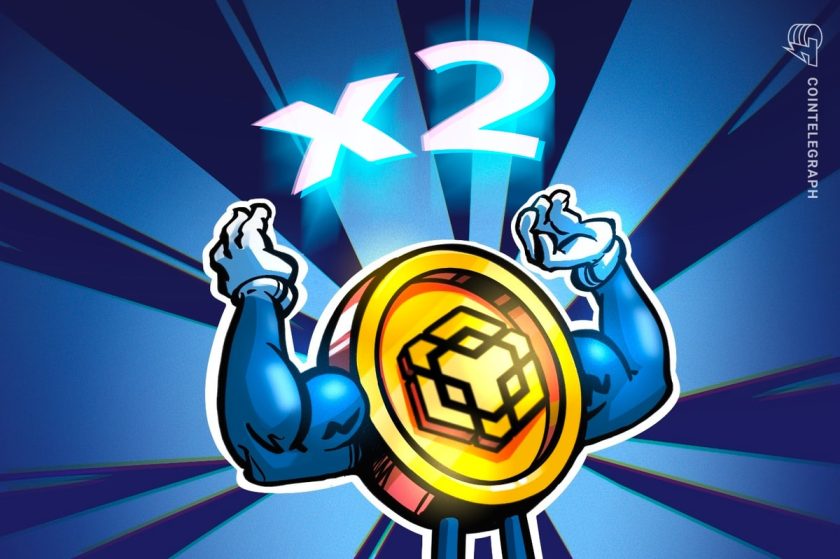Democratic lawmakers in Washington are backing off support for crypto legislation amid heightened concerns over corruption, including the conduct of the Trump family’s World Liberty Financial (WLFI).
In March, the GENIUS Act, which would regulate stablecoins in the US, passed a critical committee reading with the support of several pro-crypto Democrats. Democratic Senators Ruben Gallego, Mark Warner, Lisa Blunt Rochester, Andy Kim and Angela Alsobrooks voted with Republicans, opposite lead Democrat and prominent crypto critic Senator Elizabeth Warren.
The bill passed the committee only after a number of changes were made, including stricter requirements for stablecoin issuers and provisions for Anti-Money Laundering, countering terrorism financing and risk management procedures.
Now, it seems that even those provisions are insufficient to quell Democratic concerns. Following some high-profile crypto deals that personally enrich President Donald Trump, Congressional Democrats are pulling their support.
Bipartisan efforts on stablecoin bills endangered
Of the five pro-crypto Democrats to pass the GENIUS Act in the Senate Banking Committee, four signed their names to a statement on May 3, saying that they do not feel comfortable with the direction stablecoin legislation is taking.
“The bill, as it currently stands, still has numerous issues that must be addressed, including adding stronger provisions on anti-money laundering, foreign issuers, national security, preserving the safety and soundness of our financial system, and accountability,” the announcement reads.
The statement does not explicitly call out corruption nor mention Trump by name, but taken alongside other measures from Democratic lawmakers, it shows a growing reticence to engage on cryptocurrency issues.
As Cointelegraph reported on May 5, Representative Maxine Waters and other Democratic members of the House Financial Services Committee plan to leave a House of Representatives hearing on crypto titled “American Innovation and the Future of Digital Assets” on May 6. According to a staffer familiar with the matter, this would sink the hearing, as House rules require all committee members to be present.
The hearing concerns a draft bill, announced by Representative French Hill and other top Republicans on May 5, that would change how US financial regulators, namely the Securities and Exchange Commission (SEC) and the Commodity Futures Trading Commission (CFTC), treat cryptocurrencies.
Related: New crypto bill draft seen to curb big crypto firm influence
Waters, who has previously called for bipartisan cooperation on crypto legislation, has harshly criticized Trump, specifically his WLFI crypto investment firm. She characterized his TRUMP memecoin, released on his inauguration, as “the worst of crypto” and has been particularly vocal about the WLFI USD1 stablecoin project.
At a markup hearing on April 2 concerning the STABLE Act — a draft bill circulating the House regarding stablecoins — Waters said the bill, in its current form, allows the president and insiders to “enrich themselves at the expense of everyone else.”
“If there is no effort to block the President of the United States of America from owning his stablecoin business […] I will never be able to agree on supporting this bill, and I would ask other members not to be enablers,” said Waters.
Even Hill, a Republican leading the charge for crypto in Washington, said that Trump’s crypto projects complicate Congress’ ability to pass legislation.
Stablecoin support as political leverage
Corruption concerns may be one factor behind Democrats’ pumping the brakes on bipartisan crypto laws, but some observers believe it could be more of a political ploy.
Aaron Brogan, a lawyer specializing in regulatory issues in the cryptocurrency industry, said it’s “unlikely that this group of Senators suddenly came to their senses and realized that the mostly benign stablecoin bill they had previously supported lacked protections they refused to name.”
Brogan suggested that either lawmakers wanted to use support for the bill as leverage — Senate Majority Leader Chuck Schumer has reportedly urged Democratic lawmakers in private not to commit to the bill for this very reason — or an influential donor wants to kill the bill or use it as leverage.
Related: Are Donald Trump’s tariffs a legal house of cards?
Protect Progress, a major political action committee supporting crypto, donated millions to Gallego’s campaign, Brogan noted. He said it is possible that major donors to the committee (i.e., Coinbase) would rather see the bill replaced with something more to their liking.
While he said it’s impossible to know for sure, “Coinbase has attempted to bundle the pending market structure legislation with stablecoins to make it more likely to pass,” he said.
WLFI accused of shady dealing
WLFI has already netted some $550 million from Trump token sales and is sealing more deals that will enrich its founders and board members, many of whom are Trump family members.
One of them, Eric Trump, announced on May 1 that Abu Dhabi-based investment firm MGX would use USD1 to settle its $2-billion investment in global crypto exchange Binance.
At Token2049, Eric Trump praised the UAE for its crypto-friendly approach, saying that the regulation-heavy EU is a “lost cause.”
In November 2024, the founder of the Tron blockchain, Justin Sun, became the largest investor in WLFI when he bought some $30 million in TRUMP. More recent reports suggest he has spent nearly $70 million. On Feb. 24, just one month after Trump took office, the SEC, then with Acting Chair Mark Uyeda at the helm, halted its civil fraud investigation into Sun despite previous allegations that Sun and the Tron Foundation had illegally distributed tokens, concealed celebrity donations, and inflated trade volumes.
Critics claimed that the president was selling exposure to the highest bidder when WLFI announced that top TRUMP tokenholders would be welcomed to a gala with the president himself. This prompted one lawmaker to suggest impeachment — a pipedream in a Congress with Republican majorities in both houses.
WLFI has not responded publicly or on social media to these criticisms. In a May 5 interview with Meet the Press on NBC, President Trump downplayed the project, saying he was “not profiting from anything.” He said he hasn’t “even looked” at his portfolio.
He also rejected the idea that he should forgo any profits from WLFi. “Should I contribute all of my real estate that I’ve owned for many years if it goes up a little bit because I’m president and doing a good job? I don’t think so,” he said.
With purported scandals and pressure mounting on Democratic officials to block Republican efforts on the Hill, the possibility of a bipartisan stablecoin bill, much less a crypto framework, looks increasingly bleak.
Magazine: Crypto wanted to overthrow banks, now it’s becoming them in stablecoin fight






